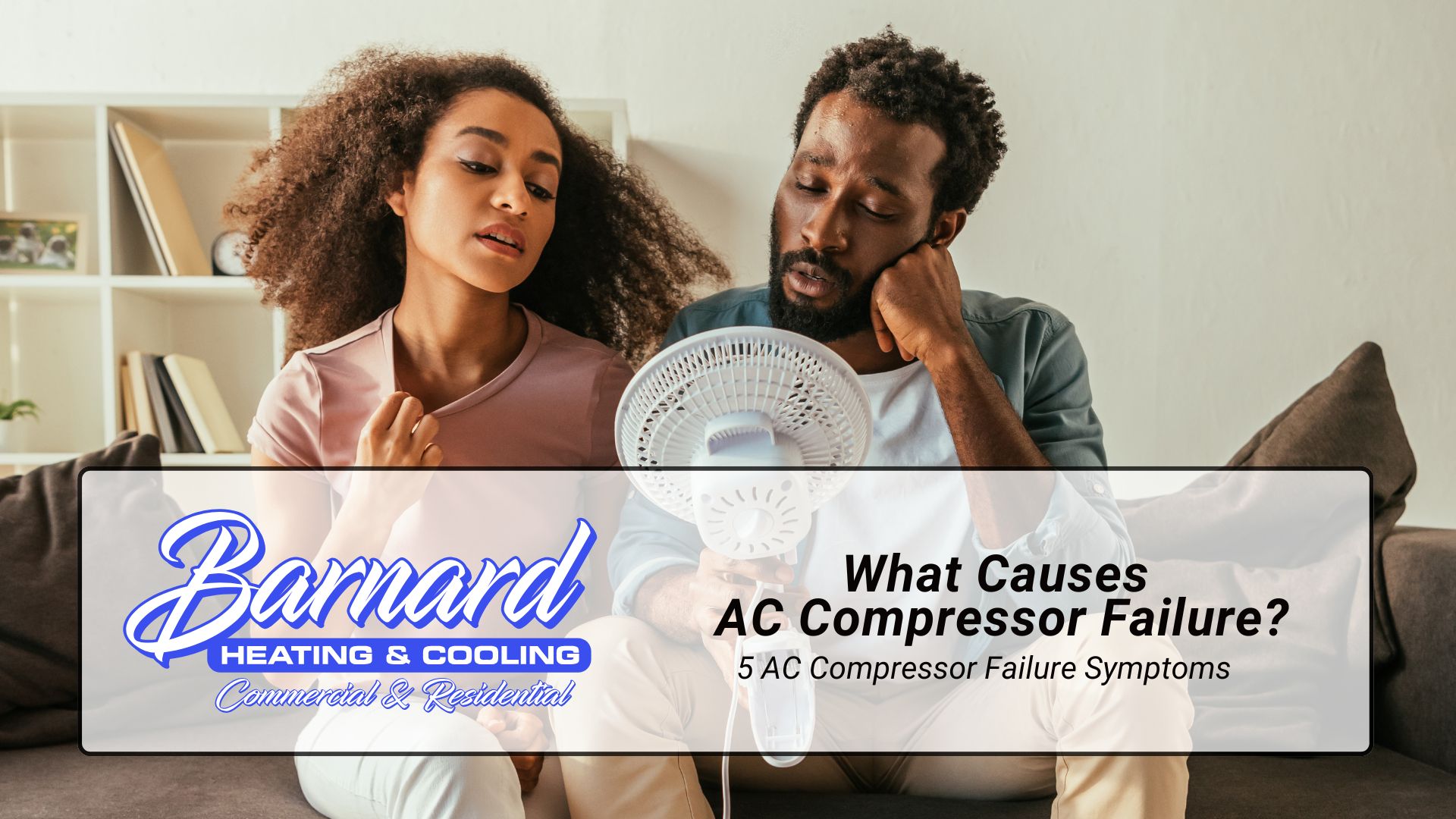Your air conditioning compressor is the heart of your cooling system, working tirelessly to circulate refrigerant and keep your home comfortable. When it fails, you're looking at one of the most expensive AC repairs possible. Understanding what causes AC compressor failure can help you prevent this costly problem and extend your system's lifespan.
Electrical Issues and Power Surges
Electrical problems are among the leading causes of compressor failure. Power surges from storms, faulty wiring, or electrical grid fluctuations can damage the compressor's motor and electrical components. Even minor voltage irregularities over time can weaken the compressor's internal mechanisms.
You can protect your system by installing a surge protector specifically designed for HVAC equipment. However, any electrical work should always be handled by a licensed professional to ensure safety and proper installation.
Refrigerant Problems
Both low and high refrigerant levels can destroy your compressor. Low refrigerant, often caused by leaks in the system, forces the compressor to work harder than designed. This overexertion leads to overheating and eventual failure.
Conversely, too much refrigerant creates excessive pressure that can damage internal components. According to the U.S. Department of Energy, proper refrigerant levels are crucial for efficient operation and system longevity.
Dirty or Clogged Components
When your AC's coils, filters, or refrigerant lines become dirty or blocked, the compressor must work overtime to maintain cooling. This extra strain generates excessive heat and pressure, accelerating wear and tear.
Regular maintenance tasks you can perform include:
- Changing air filters monthly during peak usage
- Keeping the outdoor unit clear of debris and vegetation
- Ensuring proper airflow around the condenser
Overheating and Poor Ventilation
Compressors generate significant heat during operation and rely on proper ventilation to stay cool. When outdoor units are placed in tight spaces, surrounded by vegetation, or blocked by debris, they can't dissipate heat effectively. This trapped heat causes the compressor to overheat and fail prematurely.
Age and Normal Wear
Like any mechanical component, compressors have a finite lifespan. Most last 10 to 15 years with proper maintenance, but internal components gradually wear down over time. Older compressors are more susceptible to failure, especially when combined with other stress factors.
AC Compressor Failure Symptoms
Recognizing AC compressor failure symptoms early can prevent a complete system breakdown:
- Strange noises like grinding, squealing, or clicking
- Hot air blowing from vents instead of cool air
- Circuit breaker trips repeatedly when the AC runs
- Hard starting or struggling to turn on
- Reduced cooling performance despite running constantly
If you notice any AC compressor failure signs, it's crucial to have a licensed HVAC technician diagnose the problem immediately. Continuing to run a failing compressor can cause additional damage to other system components.
Prevention Is Key
While some compressor failures are unavoidable due to age, many can be prevented through regular professional maintenance. Annual tune-ups allow technicians to identify potential problems before they become expensive repairs.
Don't wait until you experience AC compressor failure symptoms. At Barnard Heating and Cooling, we provide expert HVAC services throughout Carthage, Missouri, and the surrounding communities. Schedule your free estimate today to keep your cooling system running efficiently all season long.
